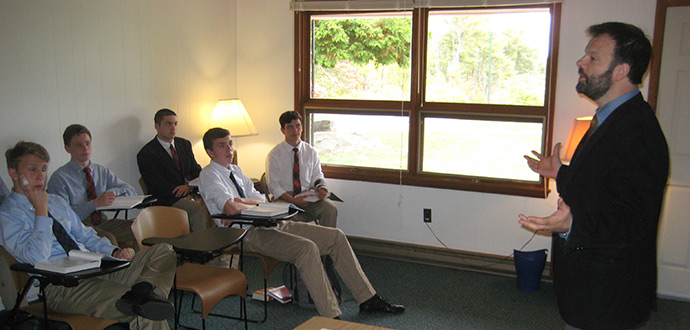 Rhetoric is the liberal art of intellectual nourishment, as cooking is the servile art of physical nourishment. Rhetoric makes truth effective. It is not simply more and more grammar or more and more logic any more than cooking is more and more vegetables. Rhetoric is rather making something out of the sentences and the arguments that grammar and logic have supplied. Aristotle defines rhetoric as “the faculty of observing in any given case the available means of persuasion.”
Rhetoric is the liberal art of intellectual nourishment, as cooking is the servile art of physical nourishment. Rhetoric makes truth effective. It is not simply more and more grammar or more and more logic any more than cooking is more and more vegetables. Rhetoric is rather making something out of the sentences and the arguments that grammar and logic have supplied. Aristotle defines rhetoric as “the faculty of observing in any given case the available means of persuasion.”
The purpose of studying rhetoric is three-fold: first, to understand and be able to apply in daily and academic realms the fundamental principles of rhetoric as taught from the Western canon; second, to awaken students to the guiding powers of rhetoric; third, to understand that the essential quality of a rhetor is not only his skill at speaking or his ability at prose but also his ethical virtues. In short, as Aristotle argues, the truly good rhetor is he who is skilled in speaking and writing, but also he who is ethical, just, and magnanimous. Or, as the Roman orator Quintilian defined it: Rhetoric is the good man speaking well.